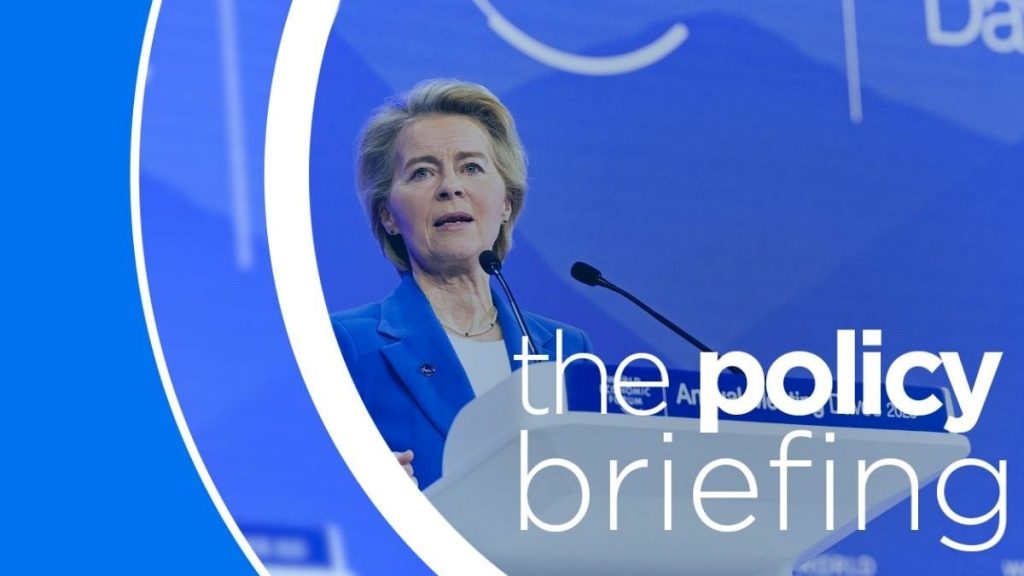The EU’s Competitiveness Compass: Charting a Course for Economic Revival
The European Union finds itself at a critical juncture, grappling with sluggish economic growth and facing formidable competition from global powerhouses like China and the United States. To address these challenges, the EU is set to unveil its Competitiveness Compass, a strategic roadmap designed to revitalize the European economy and secure its position in the global landscape. Originally scheduled for an earlier release, the presentation was postponed due to the illness of European Commission President Ursula von der Leyen, underscoring the weighty significance of this document. The Compass aims to set the EU’s economic course until 2029, providing a framework for policy decisions and investments that will shape the continent’s future. Its unveiling comes at a time of heightened concern about Europe’s economic trajectory, with experts and policymakers alike recognizing the need for a decisive and effective strategy to boost competitiveness and innovation.
The Competitiveness Compass draws inspiration from a report authored by former Italian Prime Minister and European Central Bank President Mario Draghi. Draghi’s report, presented in September, painted a stark picture of Europe’s economic performance, highlighting the significant gap in per capita income growth between the EU and the US since 2000. This disparity underscores the urgent need for Europe to enhance its economic dynamism and address structural weaknesses that have hindered its growth potential. The Compass is expected to echo Draghi’s call for a comprehensive strategy to bolster European competitiveness, recognizing the need for a "real European doctrine" to attract investment and foster innovation.
The core tenets of the Competitiveness Compass revolve around three key pillars: boosting innovation capacities, strengthening economic security, and developing the bloc’s clean industry. These priorities reflect the EU’s commitment to fostering a sustainable and resilient economy that can compete effectively in the 21st century. The Compass is expected to emphasize the importance of research and development, digital transformation, and skills development as key drivers of innovation. Strengthening economic security will entail diversifying supply chains, reducing dependencies on critical resources, and protecting European businesses from unfair competition. Finally, the development of a clean industry will be crucial for achieving the EU’s ambitious climate goals while creating new economic opportunities and jobs.
The forthcoming Clean Industrial Act, slated for presentation in February, will play a central role in the EU’s competitiveness strategy. This legislation is expected to provide a framework for supporting the development and deployment of clean technologies, promoting sustainable manufacturing practices, and accelerating the transition to a low-carbon economy. The Compass will likely emphasize the importance of simplifying regulations and streamlining administrative procedures to reduce barriers to investment and innovation. By fostering a more conducive business environment, the EU aims to attract private sector investment and create the conditions for sustainable economic growth.
However, the EU’s pursuit of economic revitalization faces external challenges, particularly in the realm of international trade. The new US administration’s trade policies have raised concerns in Europe, with some fearing that protectionist measures could harm EU businesses and disrupt transatlantic trade flows. European Commissioner for the Economy and Productivity, Valdis Dombrovskis, has expressed reservations about the US approach, arguing that tariffs are not the appropriate tool for addressing economic or national security concerns. Dombrovskis suggests that the US would be better served by focusing on domestic economic inequality rather than resorting to trade barriers.
Former EU Trade Commissioner and ex-head of the WTO, Pascal Lamy, advocates for a more assertive stance in trade negotiations with the US. Lamy suggests that the EU should approach these discussions "with a gun in its pocket," implying a willingness to retaliate if necessary to protect European interests. This perspective highlights the delicate balance the EU must strike between cooperation and firmness in its trade relations with the US. Navigating this complex relationship will be crucial for ensuring that the EU’s competitiveness strategy is not undermined by external pressures. The EU aims to foster a more strategic and assertive approach to trade, defending its interests while seeking to maintain constructive dialogue with its international partners.










